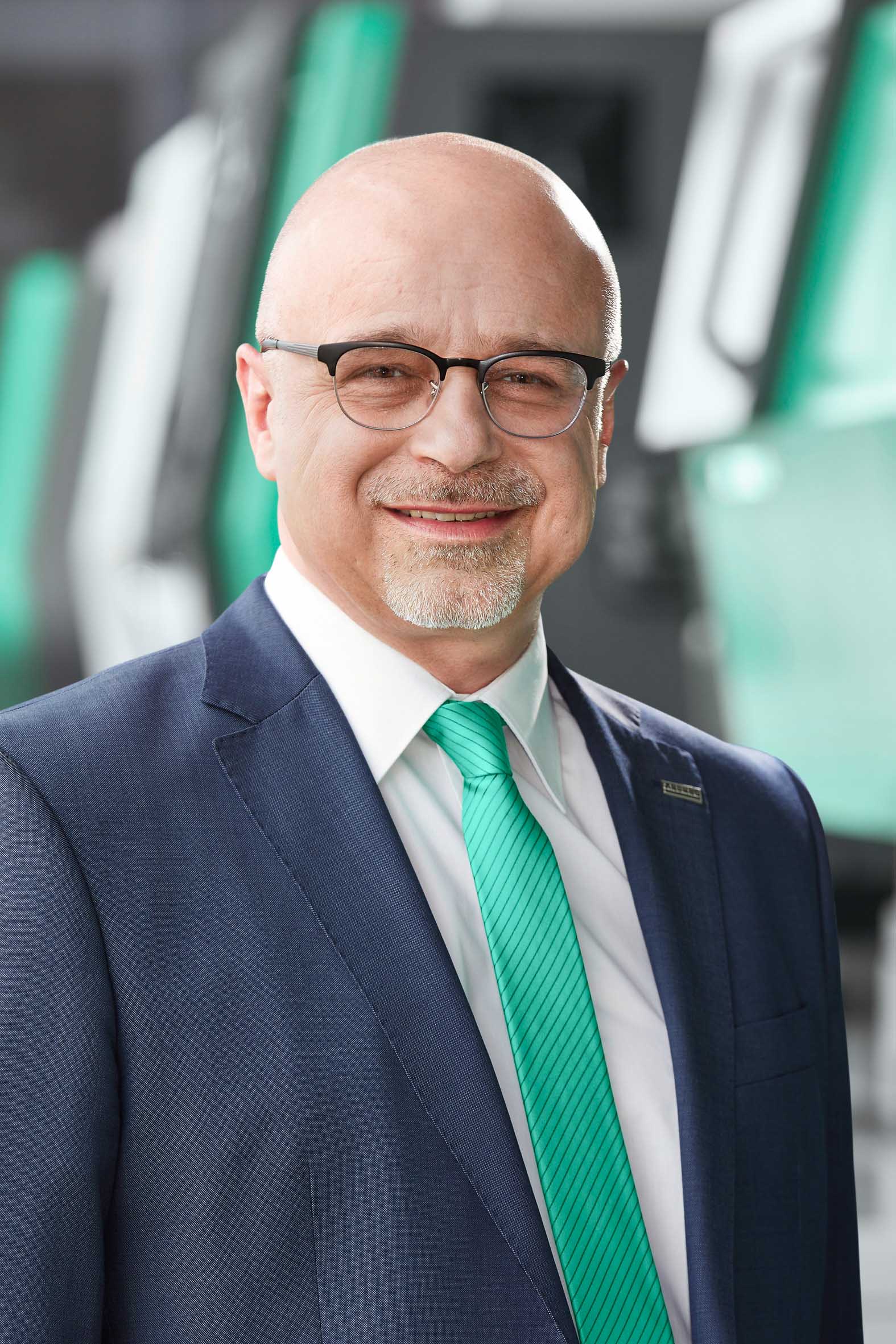
„We are the solution, not the problem”
Arburg as a machine manufacturer supports circular economy. Why do you do that?
Dr. Christoph Schumacher: We have recognised this serious and possibly most important problem of our industry and our society in the next decades, we have understood its dimension and want to contribute to solving it. We firmly believe that that this challenge cannot be faced by individual members of the value-added chain alone.
What can you at Arburg do for the cycle?
Dr. Christoph Schumacher: We as machine manufacturers can help develop new processing techniques and procedures. A classical historic issue is multi-component processing. It shows how new challenges create new techniques, and sometimes new techniques trigger the development of new products. In my view Arburg is strongly involved in the topic “resource-efficient production”. We believe that that in the next 20 to 30 years production of plastics will also be oriented towards aspects of recycling, and this is where machine manufacturers are an important factor. We must ensure the production of these parts. And all the time we must bear in mind the common goal of production efficiency for our customers. What we aim at: to manufacture resource-efficient products economically with as little material and as little energy as possible.
Will circular economy help improve the image of plastics?
Dr. Christoph Schumacher: We hope so. In our opinion, plastics as a reusable material are still the material of the 21st century. But we also see the external framework parameters. I think a major problem is the idea that plastics are waste products. Plastic materials do not belong in the oceans or the ditches but in a recycling chain. Machine engineering is an enabler, it enables recycling of plastics. You can argue over the need of packaging a cucumber. But you cannot argue about the necessity of plastics in medical technology and in everything affecting people. In this application everyone demands the highest quality product, for instance, when it comes to infusions or stents.

Is circular economy a business opportunity?
Dr. Christoph Schumacher: The whole issue must make sense from an economic point of view. The public would refuse to believe us if we pretended to have missionary aspirations. We are an industry. We actually see a business opportunity in circular economy. We could sell the value-added cycle all over the world. There are still many regions where circular economy does not play any role at all, in many Asian countries, for example, but also in parts of the US. If we could export the European or the German standard to all these markets, we would have an incredible amount of work from this field alone in the next decades. Arburg has customers who already make money as part of circular economies in countries such as Indonesia, the Philippines, Brazil and also in the US. They collect PET bottles, process them into PET flakes to manufacture PET bottles again.
Whose task will it be to export entire value-added chains to the world?
Dr. Christoph Schumacher: That’s difficult. Circular economy only works if everyone is involved in the value-added chain. But at present, there are no such consortiums to serve as export model. As a rule, such an idea can be successful only if you approach it systematically. All those involved must be convinced, there must be market incentives and legal regulation to define the framework.
What if the EU introduces circular economy and products become more expensive, but competitors from overseas offer them cheaper because they can produce more economically with virgin material?
Dr. Christoph Schumacher: That would be an inadmissible distortion of competition. If manufacturers in the EU were forced by law to adopt certain practices that other global players did not have, without regulating our markets correspondingly, legislators would have to ensure that, if they regulate the European economy, other competitors will operate under the same conditions in these markets.
Which role does the consumer play?
Dr. Christoph Schumacher: Consumers are an essential lever, but I feel, that they cannot fully understand the issue at present. This is reflected in the discussion on biodegradable products, for example. They also see pictures of whales with plastic bags in their stomachs or sea turtles in fishing nets. That’s why in a discussion you don’t stand a chance with communicative methods. What I hope for is that the plastics sector, from material manufacturing to the consumers, finds a common definition. That we recognise circular economy as a common goal and that we then position ourselves correspondingly.
In our world, plastics are indispensable. The downside is the littering. Carelessly discarded plastics products condense to form thick carpets, not just on rivers and seas, but also on land. A complete circular economy could prevent this evil and put the focus back on the benefits of plastics. In order for this to be a success, we all need to work together: processors, raw material manufacturers, mechanical engineers and recyclers, but also brand owners, end consumers and politicians.
VDMA will shine the spotlight on circular economy at the leading K 2019 trade fair in Düsseldorf in October and show how closed loops can work effectively. Throughout the process, stakeholders will be having their say in a series of interviews in the run-up to this international industry event.
About VDMA Plastics and Rubber Machinery
More than 230 companies are members of the association, covering more than 90 percent of the industry’s production activities in Germany. Ten percent of our member companies come from Austria, Switzerland and France. The German member companies represent sales of EUR 7 billion in core machinery and EUR 10 billion including peripheral technology. Every fourth plastics machine produced in the world comes from Germany; the export rate is 70 percent. Ulrich Reifenhäuser, Member of the Management Board of the Reifenhäuser Group, is the chairman of the association.
Press release from VDMA